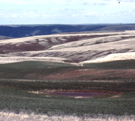Nature, Not Human Activity, Rules the Climate
Singer, S. Fred, ed., Nature, Not Human Activity, Rules the Climate: Summary for Policymakers of the Report of the Nongovernmental International Panel on Climate Change, Chicago, IL: The Heartland Institute, 2008.
Full text [here] (4,343 KB)
Selected excerpts:
In his speech at the United Nations’ climate conference on September 24, 2007, Dr. Vaclav Klaus, president of the Czech Republic, said it would most help the debate on climate change if the current monopoly and one-sidedness of the scientific debate over climate change by the Intergovernmental Panel on Climate Change (IPCC) were eliminated. He reiterated his proposal that the UN organize a parallel panel and publish two competing reports.
The present report of the Nongovernmental International Panel on Climate Change (NIPCC) does exactly that. It is an independent examination of the evidence available in the published, peer-reviewed literature – examined without bias and selectivity. It includes many research papers ignored by the IPCC, plus additional scientific results that became available after the IPCC deadline of May 2006. …
The NIPCC project was conceived and directed by Dr. S. Fred Singer, professor emeritus of environmental sciences at the University of Virginia. He should be credited with assembling a superb group of scientists who helped put this volume together.
Singer is one of the most distinguished scientists in the U.S. In the 1960s, he established and served as the first director of the U.S. Weather Satellite Service, now part of the National Oceanographic and Atmospheric Administration (NOAA), and earned a U.S. Department of Commerce Gold Medal Award for his technical leadership. In the 1980s, Singer served for five years as vice chairman of the National Advisory Committee for Oceans and Atmosphere (NACOA)…
Our concern about the environment, going back some 40 years, has taught us important lessons. It is one thing to impose drastic measures and harsh economic penalties when an environmental problem is clear-cut and severe. It is foolish to do so when the problem is largely hypothetical and not substantiated by observations. As NIPCC shows by offering an independent, non-governmental ‘second opinion’ on the ‘global warming’ issue, we do not currently have any convincing evidence or observations of significant climate change from other than natural causes. …
more »
